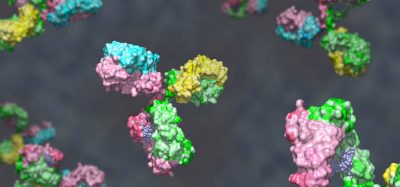Obesity could be treated by targeting mitochondrial defect, study finds
Posted: 13 August 2021 | Anna Begley (Drug Target Review) | No comments yet
Scientists have discovered a new pharmacological approach to reduce the mitochondrial dysfunction that promotes diet-induced obesity in mice.


A team at the University of California Irvine (UCI), US, have shown targeting mitochondrial dysfunction could help reduce diet-related obesity in mouse models. Moreover, the findings of the study could lead to a new weight loss strategy that could be combined with other treatments, the researchers said.
“Elegant genetic studies in mice show that maintaining mitochondrial networks in a fused state can overcome high fat diet-induced obesity,” senior author Professor Aimee Edinger commented. “Our study uses a small molecule to re-shape mitochondria in multiple tissues simultaneously, reversing obesity and correcting metabolic disease even though mice continue to consume the unhealthy diet.”
Edinger and her team used their patented water-soluble, orally bioavailable, synthetic sphingolipid SH-BC-893 to inhibit endolysosomal trafficking proteins required for mitochondrial fission. The study was conducted using in vitro experiments and a high-fat diet-induced obesity mouse model.
The researchers observed that SH-BC-893 prevented mitochondrial dysfunction in the liver, brain and white adipose tissue of mice consuming a Western diet. Consequently, circulating levels of critical metabolic hormones, leptin and adiponectin, were normalised leading to weight loss, improved glucose handling and reversal of fatty liver disease despite continued access to high-fat food.
“Imbalances in the hormones leptin and adiponectin that accompany obesity create an uphill battle for people trying to lose weight. Having too much leptin can increase appetite while too little adiponectin activity is linked to many metabolic diseases. How or why is not really clear, but the state of the mitochondria may be an important link between these hormones and obesity,” said co-lead author Dr Elizabeth Selwan.
The study’s findings suggest that SH-BC-893 could be a promising therapy for managing diet-induced obesity. The authors found the drug to be safe and effective in the mouse model and plan on further investigating the compound for possible use in human patients. “This compound works through a novel mode of action. If it is safe and effective in humans, it would offer a new weight loss strategy that could also be combined with other treatments,” concluded Edinger.
The study was published in EMBO Molecular Medicine.
Related topics
Drug Leads, Drug Targets, Hormones, In Vitro, In Vivo, Molecular Targets, Small Molecules, Target Molecule, Targets
Related conditions
Obesity
Related organisations
University of California Irvine (UCI)
Related people
Dr Elizabeth Selwan, Professor Aimee Edinger








